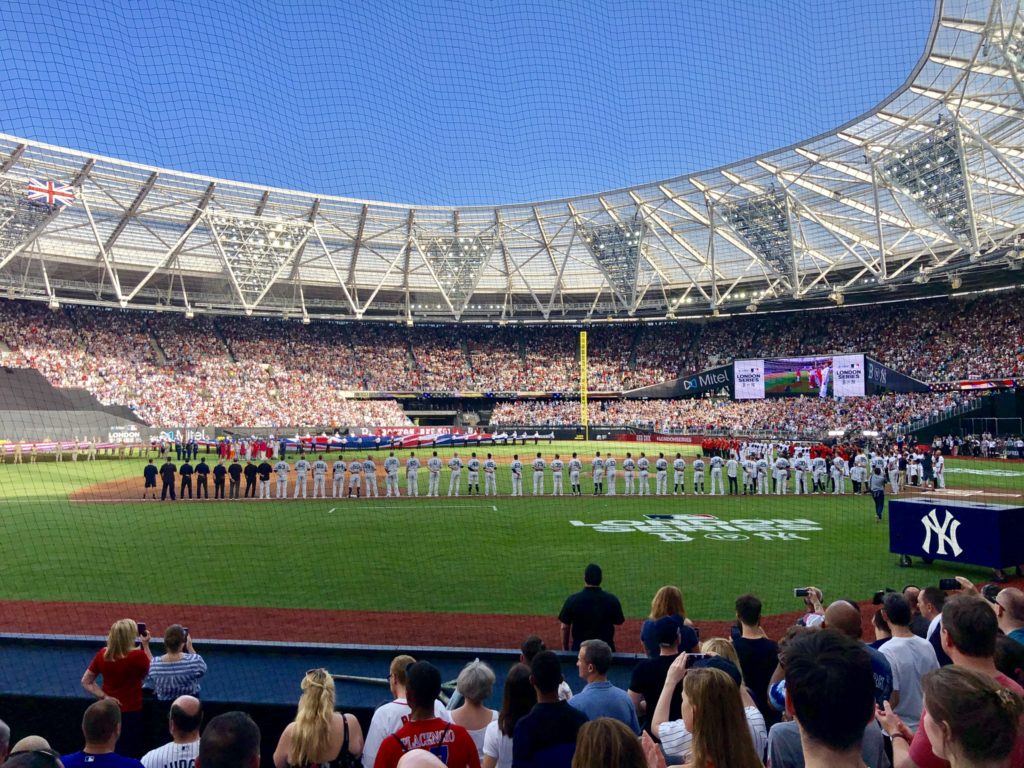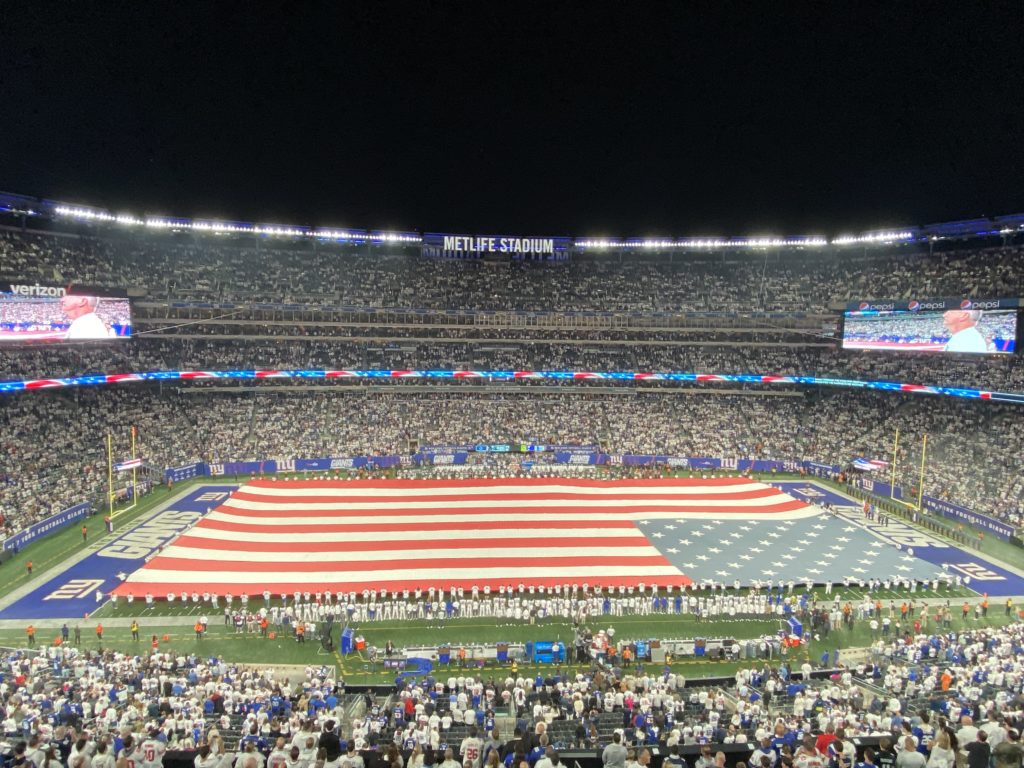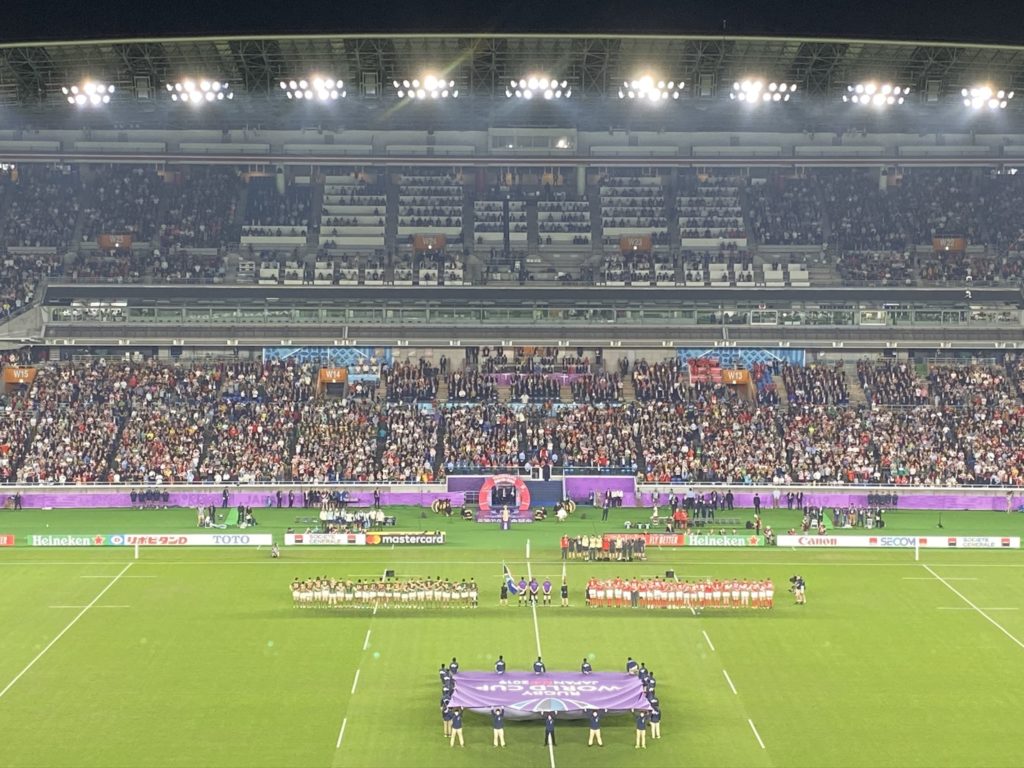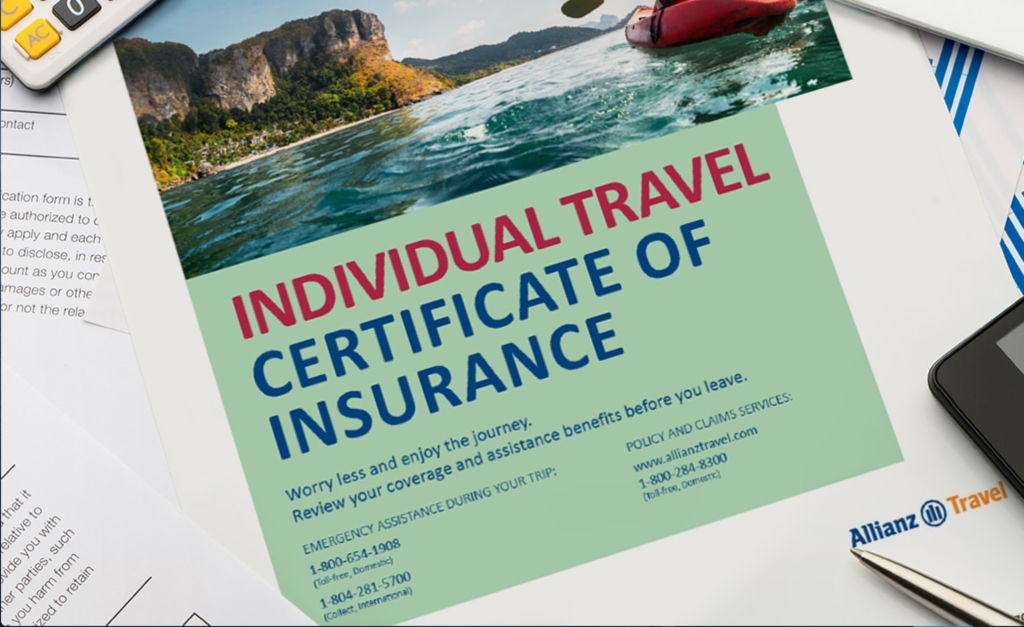I just got back from a month-long European trip where my focus was on sports tourism. I went to 7 soccer games across 6 countries in 5 leagues. It’s no secret I am a massive sports fan. I have traveled all over the globe to attend the biggest sporting events across most sports. For years people have told me I was nuts for traveling so much for sporting events even though I’ve always said that sports and travel go together. But now, post pandemic, there’s data to show that many others are starting to travel for sports tourism as well.

I went to an Atletico Madrid match at the Metropolitano
A state of the industry report released in May by the Sports Event & Tourism Association (Sports ETA) found that as consumers return to booking trips, sports-related travel for amateur and collegiate sports has rebounded from pandemic lows faster than leisure travel. Data shows this sector saw huge gains in 2021 — to the tune of $39.7 billion in direct economic impact. The survey, conducted by Tourism Economics and sponsored by Northstar Meetings Group, revealed that more than 175 million people traveled for amateur or collegiate sports in 2021, up 82 percent from the 96 million who did so in 2020.

Champions League match at the San Siro in Milan
To me this isn’t a huge shock as people who stuck close to home during Covid are itching to do stuff and people are loyal to their universities and of course their children’s sports. People also follow global sports such as soccer, tennis, rugby, and others more closely than ever with the advent of streaming, fantasy, and gambling. Plus, American sports are playing games abroad now more than ever.

Dortmund may have the craziest fan base in Europe
The NFL plays several games a year in London and are adding Munich this year with more cities to follow like Madrid and others. The NBA is playing games in Japan and Abu Dhabi this year. MLB has played in London and will resume that next year. The NHL has played several games in European cities like Prague. Not to mention college teams are playing in places like Ireland. So people have options if they’re willing to hop on a plane.

London Series in 2019, Yankees vs Red Sox at London Stadium
The internet and technology have also made European soccer more popular in America. People who don’t even like soccer are into the atmosphere and curious to attend in real life. I, myself, have been to nearly every major stadium in Europe and love it. So, I’m glad that it’s finally catching on in America.

Giants vs Cowboys on Monday Night Football
But make no mistake, traveling abroad for sports tourism is not cheap. It’s a commitment both time-wise and financially. You must consider the higher costs for airfare these days, inflation, ticket costs, high hotel costs, exchange rates and of course the possibility that something will go wrong and cause you to miss or delay your trip. For this reason, travel insurance bookings are up for sports tourism…and they should be.

2019 Rugby World Cup Semifinals in Yokohama, Japan
I have an annual travel insurance policy with Allianz Travel Insurance. I hope to never have to use it. In fact, I’ve only ever had to make a claim one time in my life thankfully. But I’m glad I have it! Sports tourism trips cost thousands of dollars and travel insurance brings peace of mind to a big investment in case things go wrong whether you’re traveling to England for a Premier League game or to the Kentucky Derby or Masters. Travel has never been more expensive, and people are protecting themselves.

El Clasico at the Santiago Bernabeu; Real Madrid vs Barcelona
Disclaimer: I am a paid spokesman for Allianz Travel Insurance












Great post, thanks!
Thanks Dan!
Sporting events offer a shared camaraderie, even if you travel solo –glad to see the sector making a swift recovery and boosting travel around the globe!
Me too!
Sports Tourism baby, the heartbeat of economic impact for all tourism. The Sports ETA state of the industry report is always eye opening.
Yessir, you would know!
Interesting! I never thought about traveling like this, great idea! 🙂